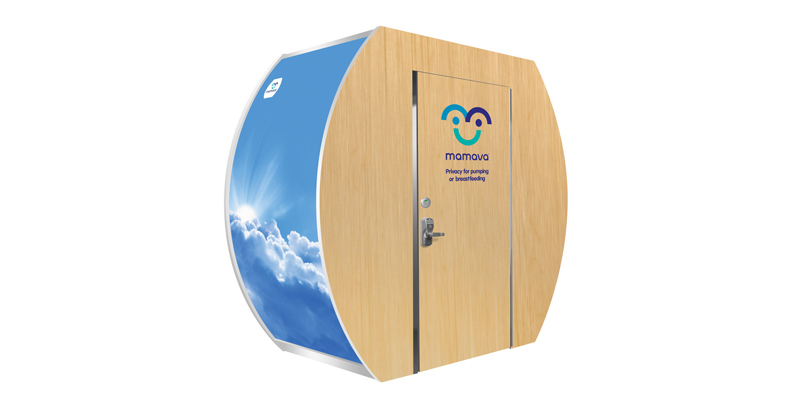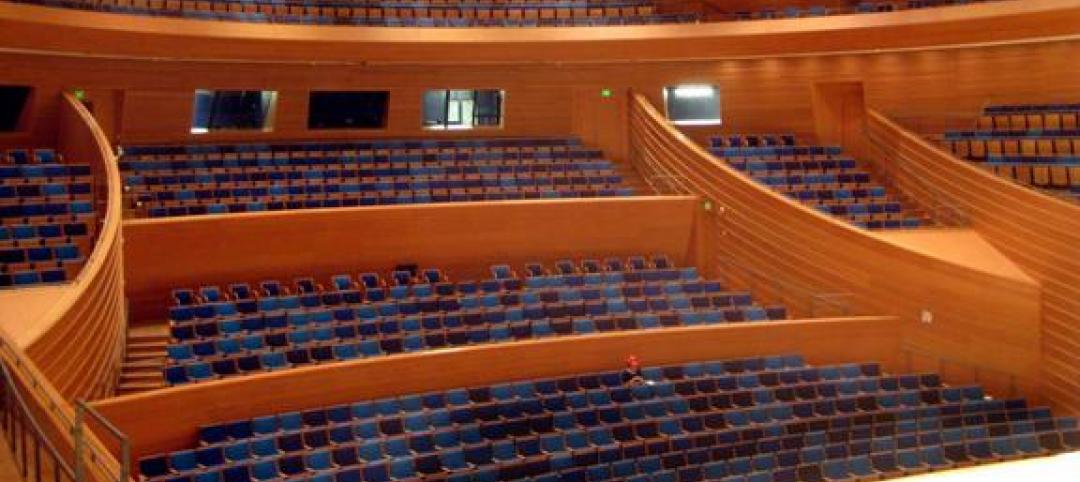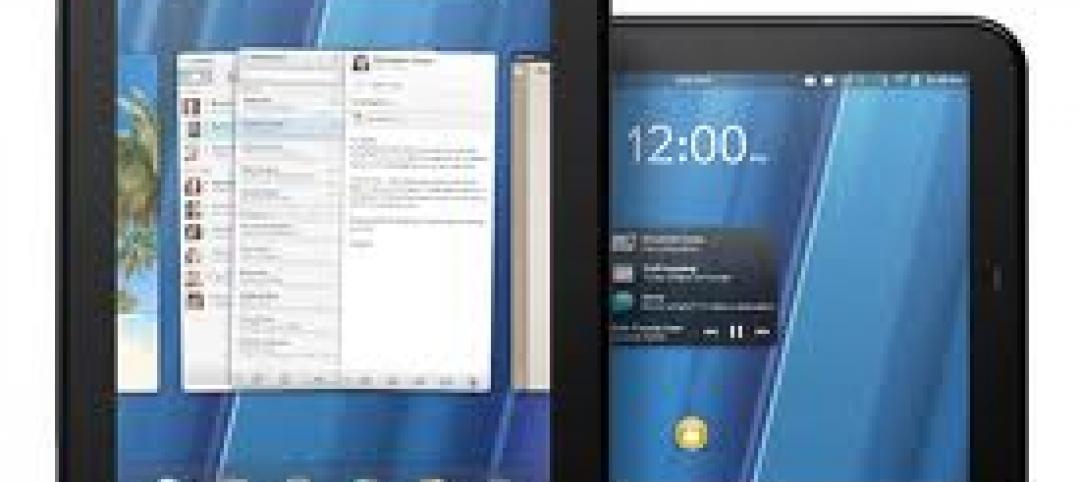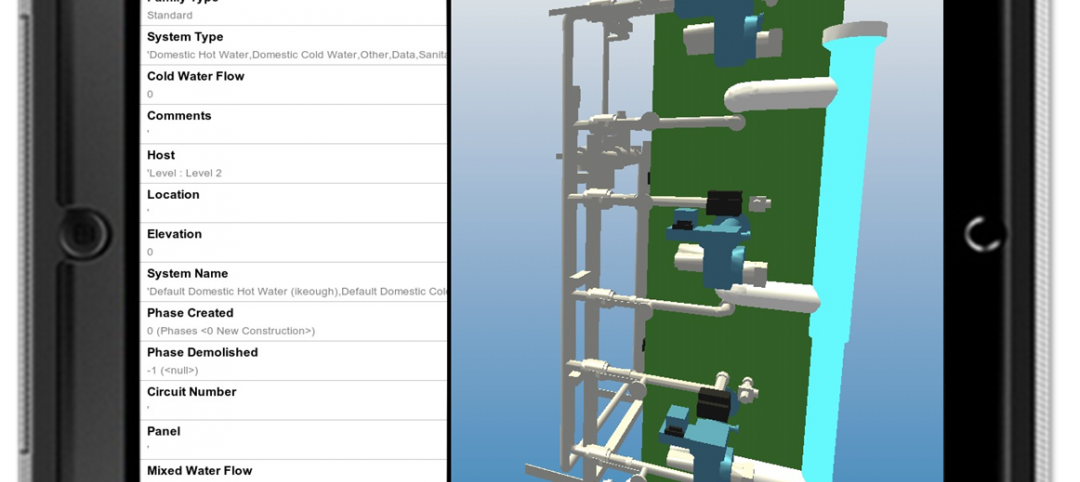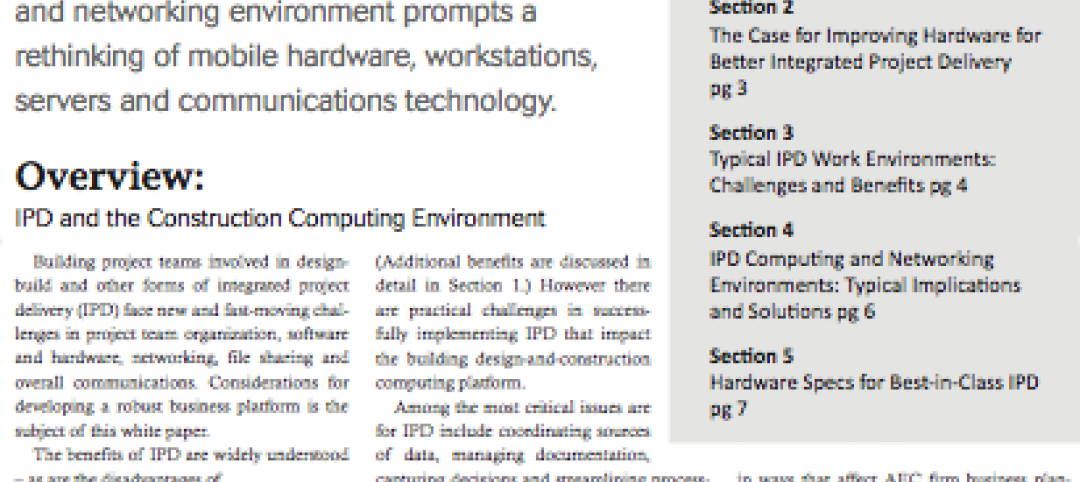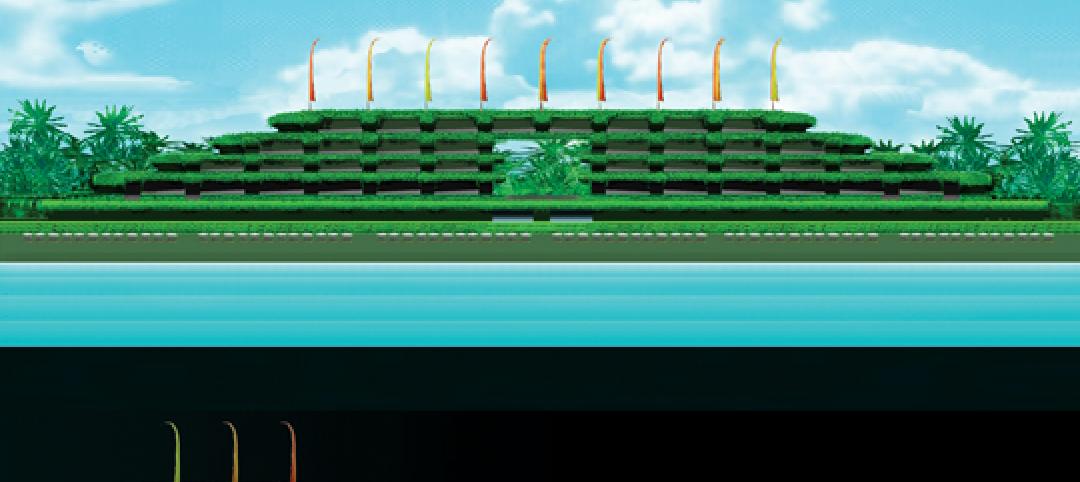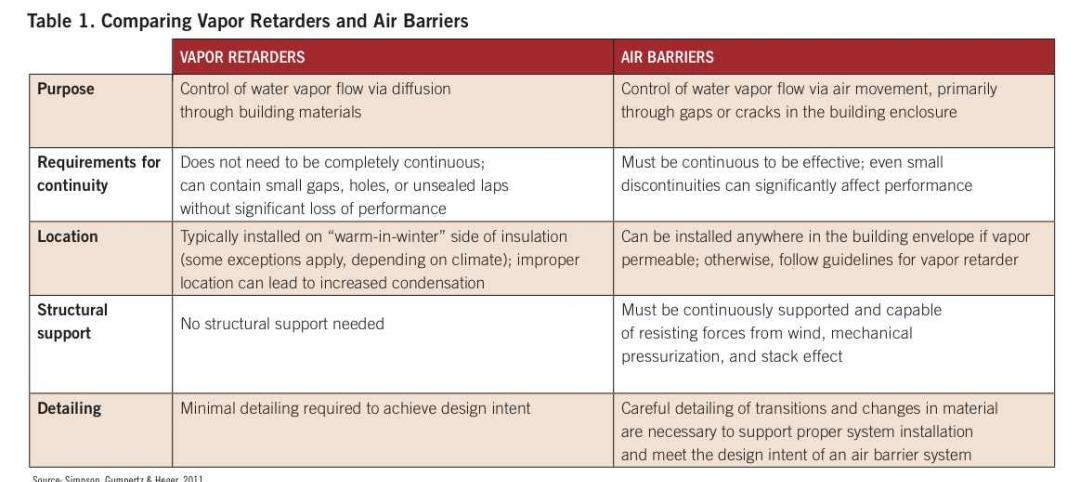When Mamava founders, Sascha Mayer and Christine Dodson, developed the concept for a mobile lactation unit, it came more from necessity than creativity. As working mothers, traveling without their nursing infants, both encountered issues with pumping in a safe, comfortable space. They noticed that while breastfeeding is strongly encouraged for mothers, accommodations to do so are somewhat lacking.
"We knew we could find a flexible, affordable solution to this problem," said Mayer. "We wanted to create something that was affordable yet easy to place, easy to clean, and provides safety and privacy for moms."
Since its conception in 2006, the Mamava lactation pod has undergone several changes in design. Shortly after partnering with Konrad Prefab, which specializes in prefabricated architectural environments, the sleek, modern shape was born. David Jaacks, owner of Konrad Prefab chose a mix of ALPOLIC® materials (timber series wood grain finish and Graphic-AL composite) for the body of the lactation suite based on previous fabrication experience.
"Throughout my career, I’ve used all kinds of products for retail design, environmental spaces, and trade show exhibits. When Mamava and I talked through the concept and settled on a design, I chose ALPOLIC® because it’s easy to work with, durable, yet lightweight and flexible," said Jaacks. "We could also print on it to customize the unit for the buyer, so it was all the things we really needed."
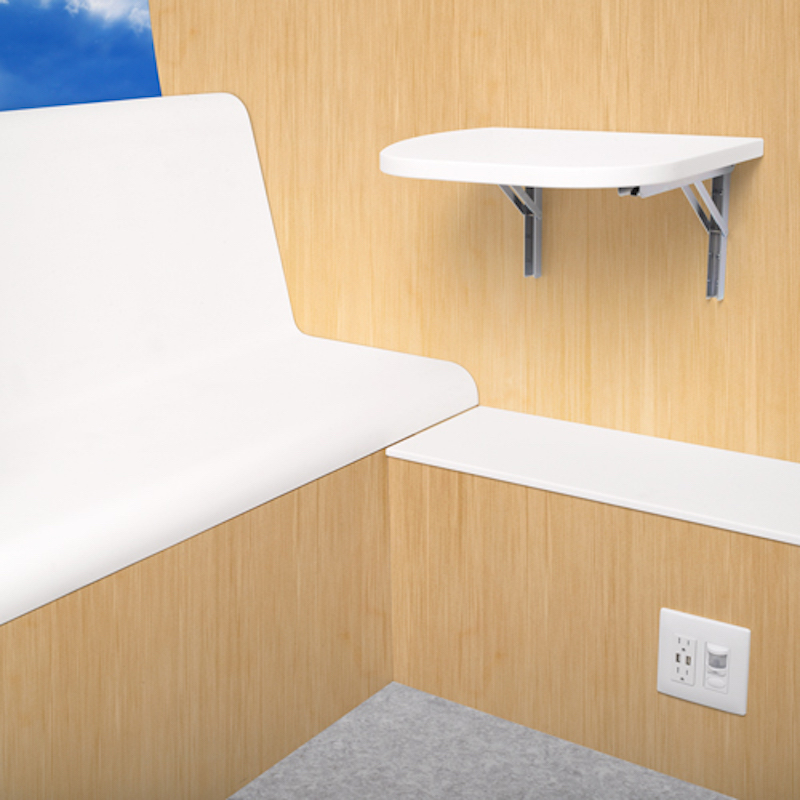
Jaacks manufactures the units in Konrad Prefab’s Springfield, VT facility, and ships the components to the end user in sections for on-site assembly. All necessary tools and instructions are included, and he estimates even a novice can construct a unit in less than three hours. To date, nearly 300 units can be found across the nation in airports, offices, sports arenas, conference centers, and government and military buildings.
Complete with LED lighting, motion sensors, and air circulation fans, the Mamava lactation suite provides businesses with a cost effective option for compliance with the Fair Labor Standards Act, which requires a private space (that is not a bathroom) for nursing mothers.
The idea for Mamava may have come from personal struggles, but the movement it created is a direct result of a digitally connected society. Mamava understands its users, so the lactation suites are accessible via an app that allows users to identify pods in their area (airport, sports arenas, malls,) and then reserve their time slots. Electronic sensors on the units lock and unlock using the phone app so privacy and availability are assured.
"Millennial moms helped push this initiative," said Mayer. "They are helping keep up this momentum through social media, and we are very excited about the opportunity this provides for constructive discussion."
To learn more about the partnership between Mamava, Konrad Prefab, and ALPOLIC®, visit www.alpolic-americas.com/mamava.
Related Stories
| Sep 12, 2011
Putting a stamp on USPS's first green roof
The Morgan Building roof totals 150,000-sf. In addition to a vegetated green roof, other roof areas were upgraded and included 55,000-sf of reflective concrete pavers and ballast, which were also placed over a Sarnafil waterproofing membrane, and 40,000-sf of EnergySmart Roof—a reflective, energy-efficient vinyl roofing system from Sika Sarnafil.
| Sep 9, 2011
Kauffman Center for the Performing Arts in Kansas City opens this month
Theatre Projects played the lead role in theatre design and planning as well as in engineering the customized theatre equipment. BNIM in Kansas City served as the executive architect.
| Aug 19, 2011
Enhanced acoustical design
Ambient noise levels in some facility types are trending up and becoming a barrier to clear communication between building occupants.
| Jul 22, 2011
The Right Platform for IPD
Workstations for successful integrated project delivery, a white paper by Dell and BD+C.
| Jul 22, 2011
Air barrier systems: Your guide to optimal performance
Expert advice on how to control wasteful air leakage in the building envelope.


